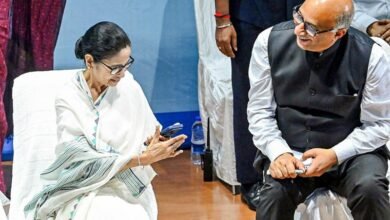What is Population Control Bill, two-child policy and its Constitutional roots?

The bill on population control comes day after the UN projected that India could surpass China as the world’s most populous country by next year.
BJP MP Ravi Kishan, who represents the Gorakhpur constituency, on Friday said he will introduce a private members’ bill on population control in the Lok Sabha. The bill was supposed to be tabled on Friday.
A private member’s bill is introduced by an MP other than a minister. There is little possibility of such as bill becoming a law without the government’s support. Since 1970, no private members’ bill had been passed by Parliament, PTI reported quoting data from PRS Legislative.
The bill on population control comes day after the United Nations projected that India could surpass China as the world’s most populous country by next year.
Many BJP leaders, including Union Minister Giriraj Singh, have been demanding introduction of laws to check the rising population growth in India. However, the Union Health Ministry said earlier this week that it was not considering any such proposal.
What does Population Control Bill say?
The proposed bill aims at disincentivising couples from giving birth to more than two children. It says that couples with more than two children policy be made ineligible for government jobs and subsidies on various facilities and goods provided by the government.
However, the two-child policy has been tabled in the Parliament for nearly three dozen times, but has failed to get a green signal from either of the Houses.
The Population Control Bill, 2019, which was withdrawn in 2022, proposed to introduce a policy of two-child per couple. The bill also proposed to incentivize the adoption of the policy through educational benefits, home loans, better employment opportunities, free healthcare, and tax cuts.
What does the Constitution say?
Article 22 of the 1969 Declaration on Social Progress and Development, adopted by the United Nations General Assembly in a resolution, ensures that couples have the right to choose freely and responsibly the number of children they will have.
Notably, the policy to control and regulate the number of children violates such constitutional rights as Article 16 (equal opportunity in matters of public employment) and Article 21 (protection of life and liberty).
Constitutional challenges
The two-child policy does not take into account the rights of divorced couples as well as the tenets of Islam. Earlier bills that were introduced in the Parliament lacked these features.
Moves by states
Last year, the Uttar Pradesh Law Commission shared a draft bill on population control on its website and called for suggestions from the public. As per the draft bill, couples having more than two children in Uttar Pradesh will not be allowed to contest local bodies elections or apply for government jobs, or receive any kind of subsidy.
A similar move was made in the Assam Assembly in 2017 with the ‘Population and Women’s Empowerment Policy of Assam’. It stated that those having more than two children would not be eligible for government jobs.
This story has not been edited by News Mania staff and is published from a syndicated feed
Photo: Internet






